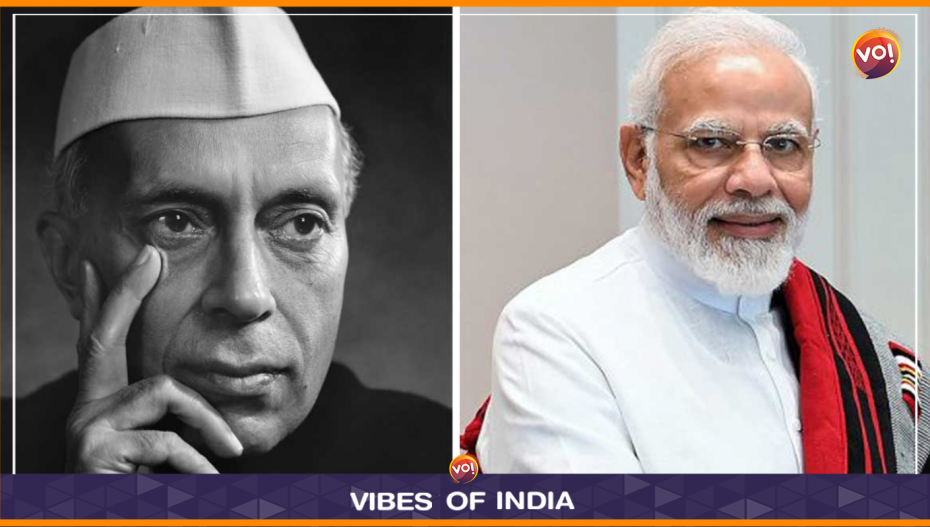Prime Minister Narendra Modi’s reply, Thursday, to the Motion of Thanks on the President’s address was full of jibes hurled at the Opposition, particularly at Congress leader Rahul Gandhi who earlier launched a scathing attack on the government in Lok Sabha over the Adani crisis.
Responding to Rahul Gandhi’s suggestion of a study on the meteoric rise in the business fortunes of billionaire Gautam Adani under the Modi government, the PM pointed at “an important study done at an Ivy League research university on the subject – ‘Rise and fall of India’s Congress Party’.”
Published in 2016, the study lauds Jawaharlal Nehru who has been often attacked by the BJP. Significantly, it has no mention of Congress in the post-Vajpayee era and during the 2014 elections.
Concentration of power and promotion of “Nehru family patrimony” at the party’s cost by Indira Gandhi, corruption scandals such as the Bofors during Rajiv’s time, “worsened inequality” after the 1991 economic reforms along with the “saffron wave” led to the decline of the Congress, notes the Harvard Business School (HBS) paper that was quoted by PM Narendra Modi in the Lok Sabha Wednesday.
The paper in focus was authored by Akshay Mangla, now an associate professor in International Business at Oxford University’s Saïd Business School. The researcher was then working with HBS and the paper was jointly authored with fellow researcher, Jonathan Schlefer.
Titled “In the Name of Democracy? The Rise and Decline of India’s Congress Party,” the 30-page study examines the political history of the Congress and its evolution since Independence, factors that led to the party’s initial rise to power, its dominance in Indian politics, and the reasons behind its decline.
Concluding the paper, the authors mentioned how the late former PM and BJP leader Atal Bihari Vajpayee was fond of Nehru and compared him to Lord Ram when he died.
From Nehru’s Congress which was ideologically flexible, to Indira Gandhi’s Emergency (1975 to 1977) to the party’s pro-business turn — the paper captures it all. However, there is no mention of the Congress in the post-Vajpayee era and the 2014 elections.
“Nehru showed deference to Parliament. He meticulously respected court rulings, even when they struck down his cherished policies, such as land reform. The Supreme Court and the Election Commission, which supervised elections, enjoyed independence from politics. Nehru adopted a foreign policy of ‘non-alignment’ during the Cold War. He limited defense spending, preserving public resources for economic development,” the study noted.
Explaining the Congress’ internal decision-making processes, the paper said a “managerial class” at the top of the party made decisions via consensus. Below it, “an elaborate network of factions” engaged in intense competition.
Intra-party democracy allowed for alternation in leadership. Party members who rose up the ranks challenged those at the top. At times, they broke off to organise external opposition, it added.
In 1959, Nehru’s daughter Indira was elected as president of the Congress. Five years later, Nehru passed away.
According to the authors, during her years of tenure, Indira bypassed state-level party organisations which were earlier consulted in the selection of electoral candidates, (and) “consulted a small clique of advisers consisting mostly of personal ties, including her son Sanjay Gandhi”.
The study stresses on the fact that “Congress party’s norms of consultation deteriorated. The organisation behind ‘a great national movement’ had become converted into a Nehru family patrimony. While Nehru stressed neutrality and autonomy of bureaucrats, Indira rewarded some for personal loyalty and punished those who lacked it.”
Commenting on Indira Gandhi’s regime, the paper said that after winning with a two-thirds majority in the 1971 elections, she began “plebiscitary politics”, appealing directly to voters, during which she “sidelined” party workers and “solicited funds from interested or intimidated sources.”
The paper also noted that Congress’ land reform measures to redistribute large holdings and provide tenant farmers security were “poorly implemented in practice,” generating massive inequalities in land ownership.
Clearly the first-generation leadership which sacrificed their careers and faced jail during the Independence movement, gave way to a new generation of politicians in the 1960s. Many began to use public resources for personal gain, collecting “black money” to fund their electoral campaigns.
After Indira Gandhi was assassinated in 1984, her son Rajiv Gandhi “strengthened the state’s pro-business leanings, reduced corporate taxes and tried to promote exports.” However, the Congress’ pro-business tilt left the demands of the rural poor unaddressed.
At the same time, regional parties representing the marginalised were on the rise and were gaining national prominence, the paper pointed out.
The BJP proved a formidable rival, ending Congress domination of elections. The Congress had also changed, recording major setbacks, including a corruption scandal stemming from a $285 million contract awarded to a Swedish arms dealer, Bofors,” the paper highlighted.
Also Read: Gautam Adani Hires Legal Firm Wachtell In US Against Hindenburg: Report












